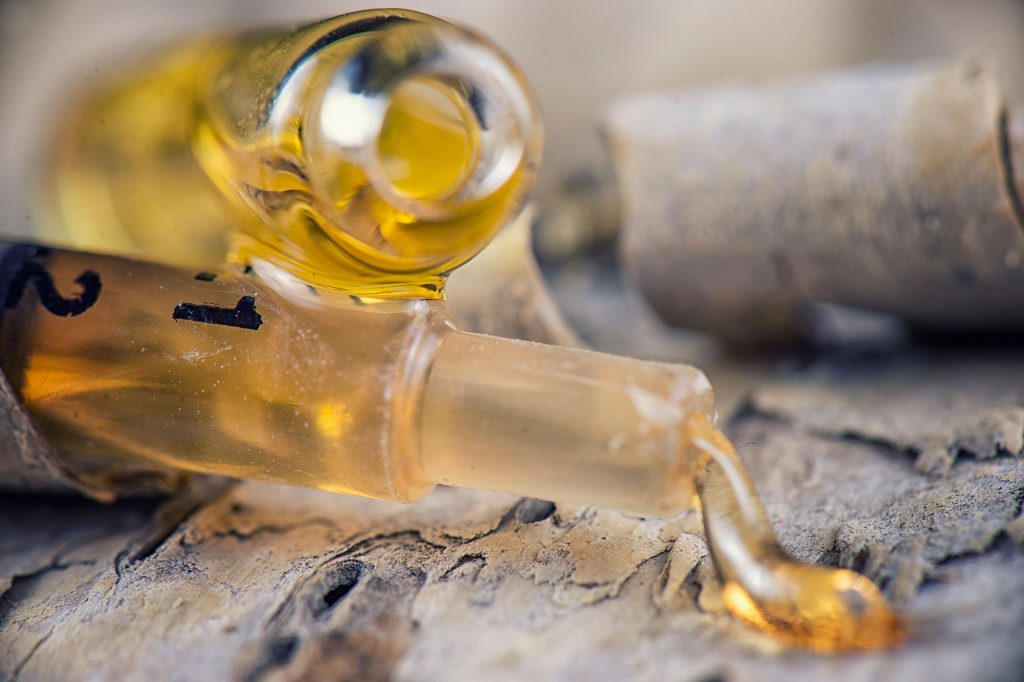Like all important stories, we should start at the beginning: Let’s talk about delta-8 THC. At first blush, it sounds nothing short of amazing. What most of us know for sure is that marijuana gets you high. And what we’ve come to learn over the past few years is that CBD, unlike marijuana, is intrinsically beneficial in myriad ways without possessing psychoactive components, thus not getting you high.
Now, imagine the previously unthinkable as being possible: something that does both.
Delta-8 THC purports to give the user a modest high without impairing function, some have dubbed it “weed light.” In fact, delta-8 THC is ostensibly designed for highly functional individuals, including athletes. As you can imagine, this has blown the minds of many people in several industries for both exploring the growth possibilities of a delta-8 THC marketplace as well as the many obstacles—legal and ethical—and very real dangers affiliated with delta-8 THC use. So, yeah, it’s all a bit complicated.
BY RICHARD PÉREZ-FERIA
Cannabis and hemp plants grow very small amounts of delta-8 THC, making it far rarer than delta-9 THC. However, it can be derived from either type of cannabis plant using special breeding, extraction, and processing methods.
Breaking it down, most products that contain THC are made with delta-9 THC, the form of THC that alters and impairs functionality. Delta-8 THC is different but exceedingly rare in the past because it was deemed too difficult to extract in large enough quantities. The key to delta-8 THC’s perceived desirability is that when used or ingested, it allows for a modest high without impairing function—though the delta-8 THC that’s currently readily available for purchase may contain upwards of 15-20% THC making it highly psychoactive with possible adverse reactions, much to the adoration or loathing of the consumer.
One can clearly see why there would be concern and, frankly, confusion from the cannabis, hemp and CBD industries as to the potential long-lasting impact wide consumer availability of delta-8 THC would mean for those markets. By most analyses, the hemp and CBD industries stand most to lose by the onset of a large delta-8 THC consumer presence. And the reason is as plain as day: delta-8 THC is, arguably, the ultimate compromise, a sort of Switzerland, if you will, between CBD, hemp and marijuana. But, as illustrated earlier, things aren’t quite what they seem.
Delta-8 THC is technically legal if it’s derived completely from hemp—it’s considered a “legal isomer of CBD,” according to the 2018 US Farm Bill—but the bill is due for re-enactment in 2022 and delta-8 THC should prove to be a hot-button topic in Congress.
For many years, fans of traditional delta-9 THC (marijuana) products didn’t have the option of selecting the milder delta-8 THC products because, frankly, none existed. Now, several startup companies have launched selling a variety of offerings including delta-8 THC gummies, tinctures, vape carts and more. But, cannabis and hemp plants grow very small amounts of delta-8 THC (in relation to delta-9 THC), making it far rarer and more difficult to ascertain. Because extracting delta-8 THC remains infrequent and hard to execute efficiently, rushing a brand’s delta-8 THC products to the open market will seemingly serve those companies best.
But is it legal? Delta-8 THC is technically legal if it’s derived completely from hemp—it’s considered a “legal isomer of CBD,” according to the 2018 US Farm Bill—but the bill is due for re-enactment in 2022 and delta-8 THC should prove to be a hot-button topic in Congress. Broadly, wherever CBD is legal, delta-8 THC products are legal as well. But that, too, isn’t a straightforward answer either as there are nine states that currently ban all delta-8 THC products. So, why do Alaska, Idaho, Delaware, Nevada, Iowa, Nebraska, Utah, Mississippi and Arkansas stand in opposition of delta-8 THC? In those states, all cannabis products, either regardless of strength or extraction method, are deemed illegal (Nevada is the exception as it allows cannabis sales, but not delta-8 THC products that exceed CBD levels of THC, that is, 0.3%). Further, it’s not only probable, but likely those who use products with delta-8 THC will fail a standard drug test because typically those tests don’t look for specific types of THC, but rather what’s called THC metabolites. When the body processes any form of THC, that’s when THC metabolites appear assuring a failing drug test.
Is this the time to worry for CBD and hemp brands? Is the possible explosive reaction by consumers to delta-8 THC gummies and tinctures mean certain doom for CBD and hemp purveyors? Not so fast. According to Hemp Industry Daily’s Hemp & CBD Industry Factbook 2021 Edition, even though the buzz is certainly growing about delta-8 THC and other cannabinoids found rarely in the plant, CBD is still king.
There are a lot of questions—important questions—that must be addressed in relation to delta-8 THC, not the least of which is if delta-8 THC is actually a loophole way to get high without having to get a medical card?
By a mile, cannabidiol continues to far outpace all other cannabinoids growers strive to produce, but the trends for CBD aren’t as rosy as they once were. In 2019, 96% of all hemp grown was for CBD; in 2020 that number dropped to 80%. Surprisingly, CBG, another lesser-known cannabinoid, is gaining on its much more famous cousin. In 2019, 19% of all hemp grown for cannabinoid extraction was for CBG; in 2020, that number jumped to a sizeable 43%. CBN, yet another lesser-known cannabinoid, went from 10% of the hemp grown in 2019 to 12% in 2020.
Importantly, only 3% of growers were cultivating hemp for the emerging delta-8 THC category last year, a segment that’s undeniably gaining traction and popularity. In fact, according to Hemp Industry Daily, hemp processors are buying excess flower and distillate on the market to facilitate delta-8 THC, a smokable and edible extract that seems to be popular with hemp, CBD and THC consumers. In the end, this could all be a moot point, pending on the legality of delta-8 THC that may hinge on whether it’s made synthetically or derived organically. I told you it was complicated.
For all its perceived popularity and ever infringing market share of the CBD marketplace, there are a lot of questions—important questions—that must be addressed in relation to delta-8 THC, not the least of which is if delta-8 THC is actually a loophole way to get high without having to get a medical card? But other questions remain unanswered as well including should anyone smoke flowers sprayed with delta-8? Is there a reason nine states currently categorize delta-8 THC the same as cannabis? Is corporate America going to have to drug test their employees more regularly because of the advent of delta-8 THC?
Though there are companies sprouting up that are indeed offering delta-8 THC derived products, an equal number of established CBD and hemp brands have unilaterally decided not to sell synthetic or too powerful delta-8 THC products.
Though there are companies sprouting up that are indeed offering delta-8 THC derived products, an equal number of established CBD and hemp brands have unilaterally decided not to sell synthetic or too powerful delta-8 THC products. Take Canna Comforts, a five-year old cannabis and CBD company that has unequivocally chosen against selling delta-8 THC products that aren’t natural and fall under the total THC rule of 0.3% because of “delta-8 THC’s legal gray areas and decidedly psychoactive effects at altered levels.” And they’re not alone.
Bottom line? Though the first-to-market brands selling delta-8 THC products should see a boon for their businesses initially, between the legal gray areas, lack of consumer awareness, and ongoing difficulty in extracting enough quantities to meet the potential massive demand, delta-8 THC’s success is no slam dunk guarantee. Far from it, in fact.
The CBD, hemp and cannabis industries should, of course, remain vigilant on the emerging threat that a wide consumer activation of delta-8 THC products may trigger negatively on their own market share, but the truth remains that it’s even more likely that the initial interest in delta-8 THC won’t impact the zeitgeist in either culturally or empirically significant ways. At least not for a long time.
Like most things that seem too good to be true, delta-8 THC seems to fall into that category as well. But, as always, time will surely tell.

